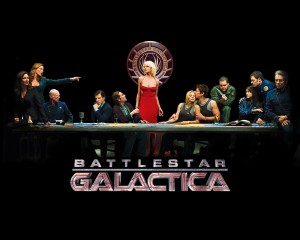 While I didn’t get to roll out my new seminar ideas this year, I’ll be teaching an LIB 200 section in the fall drawing on some of the readings/themes that we touched upon this semester. My LIB 200 fall course will focus on our relationship with technology, artificial intelligence, and robots: clearly, the 2015-16 seminar topic will continue to influence and change the shape of my course for its spring 2016 iteration. As of now, we’ll be starting with Turkle before launching into a series of films/TV shows (mostly of the dystopian & sci-fi persuasion) on the above theme. The tentative screening list includes Transcendent Man, Terminator, Blade Runner, Battlestar Galactica, and the recent release Ex Machina – there will be readings to accompany these viewings, of course.
While I didn’t get to roll out my new seminar ideas this year, I’ll be teaching an LIB 200 section in the fall drawing on some of the readings/themes that we touched upon this semester. My LIB 200 fall course will focus on our relationship with technology, artificial intelligence, and robots: clearly, the 2015-16 seminar topic will continue to influence and change the shape of my course for its spring 2016 iteration. As of now, we’ll be starting with Turkle before launching into a series of films/TV shows (mostly of the dystopian & sci-fi persuasion) on the above theme. The tentative screening list includes Transcendent Man, Terminator, Blade Runner, Battlestar Galactica, and the recent release Ex Machina – there will be readings to accompany these viewings, of course.
I want students to question their own relationship to technology and the anxiety-filled (even perhaps paranoid?) discussions that seem to accompany developments in robotics and AI. We discussed many of these anxieties in our current seminar – especially in relation to social media use or denial – but I think the long-standing concerns around artificial intelligence are particularly compelling (not to mention I’ve been trying to find a way to teach BSG for years).
I intend to further develop an assignment I used in my ENG 101 sections this past term to have students pursue a particular research question they have around technology. In ENG 101, my students created podcasts to respond to our course materials (related to race, ethnicity, mass incarceration, and exclusion in the US), and later developed a more substantial research podcast in response to a particular social issue they found interesting. The second podcast required that they include other outside voices: I think this format would be ideal for exploring multiple views on technology, and the digital demands are rather basic.
LIB 200 is – in my mind – an inherently interdisciplinary course: in this section, biomedical implications, technology, philosophy, and ethics will all clearly enter the conversation. The links drawn between fictional dystopias and contemporary AI developments will (I hope) encourage students to interrogate their use of and relationship to devices, social media, and to question what a cyborg/enhanced future will look like.

